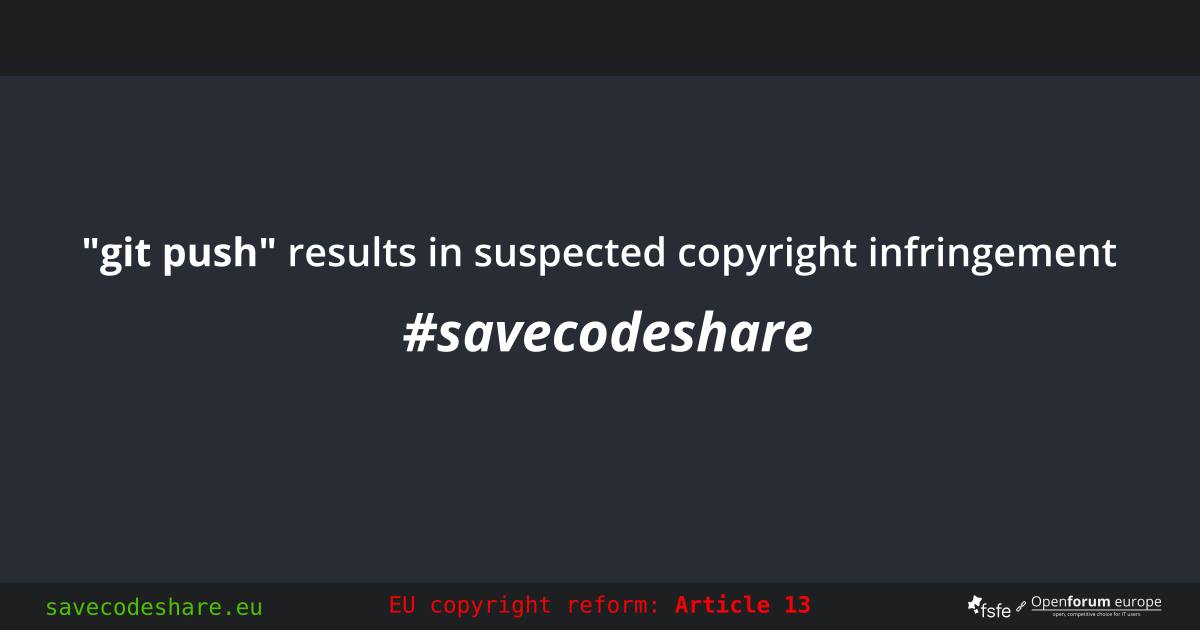EU Copyright Review: Tell Legislators to Save Code Share
The FSFE, together with Open Forum Europe, asks the EU policymakers to Save Code Share in the current on-going EU Copyright review. Today we ask you to support our newest campaign Save Code Share by signing an Open Letter addressed to the EU policymakers.In this letter we request EU legislators to preserve the ability to collaboratively build software online in current EU Copyright Directive proposal.
If the proposed changes targeted at online platforms are implemented, this would force online code sharing repositories to use filters that monitor and preemptively take down any content that could potentially infringe copyright, including entire code repositories. Otherwise, platforms will be held directly liable for any alleged copyright infringement found in the source code hosted on their services. Such shift in the liability regime from rightholders to platforms would durably harm the Free Software ecosystem which often relies on code hosting platforms to build software together, as it will result in more arbitrary code removal on code hosting platforms.
How does Article 13 harm Free Software?
A lot of the software used in everyday life contains Free Software components. Free Software is popular because it can be shared under terms that allow and encourage using it for any purpose, studying its source code, sharing it with others, and customising it according to one's needs. Source code is often shared through online code hosting platforms that act as a main access point for collaboration online.
The current legislative negotiations over the EU "Copyright Reform" package, and particularly Article 13, indicate that we risk seeing the imposition of far-reaching rules for every online platform which allows their users to upload large amounts of content, including code hosting platforms. Specifically, the proposals embodied in the draft of Article 13 threaten code hosting platforms by imposing new obligations on them. Namely, code hosting platforms will be legally required to use costly (but ultimately fundamentally flawed) filtering technologies. There are no known filtering technologies that could accurately and reliably identify whether any Free Software is being shared in accordance with its legal terms and conditions. In addition, the proposed Article 13 will oblige online platforms to monitor their users and actively seek for possible copyright infringements.
Consequently, Article 13, as currently proposed, would shift the responsibility for protecting allegedly infringed rights from rightholders to platforms in a way that disproportionately harms the sector that is a cornerstone of innovation.
Article 13 would restrict the freedom of developers to choose freely among a variety of software components and tools, as these tools and components will no longer be available online. In a domino effect, Free Software projects could no longer rely upon precedent projects and tools due to an arbitrary upload filter that can prevent code being hosted online. As a consequence, software will become less reliable, and digital infrastructure less resilient for everybody.
Take Action Now
Please sign and share the Open Letter both on behalf of an organisation, and as an individual. The Open Letter together with your signatures will be handed over to the Members of the European Parliament and the EU Council. For more information on how proposed Article 13 would harm fundamental rights and negatively impact collaborative software development and Free Software, please read our White Paper.
